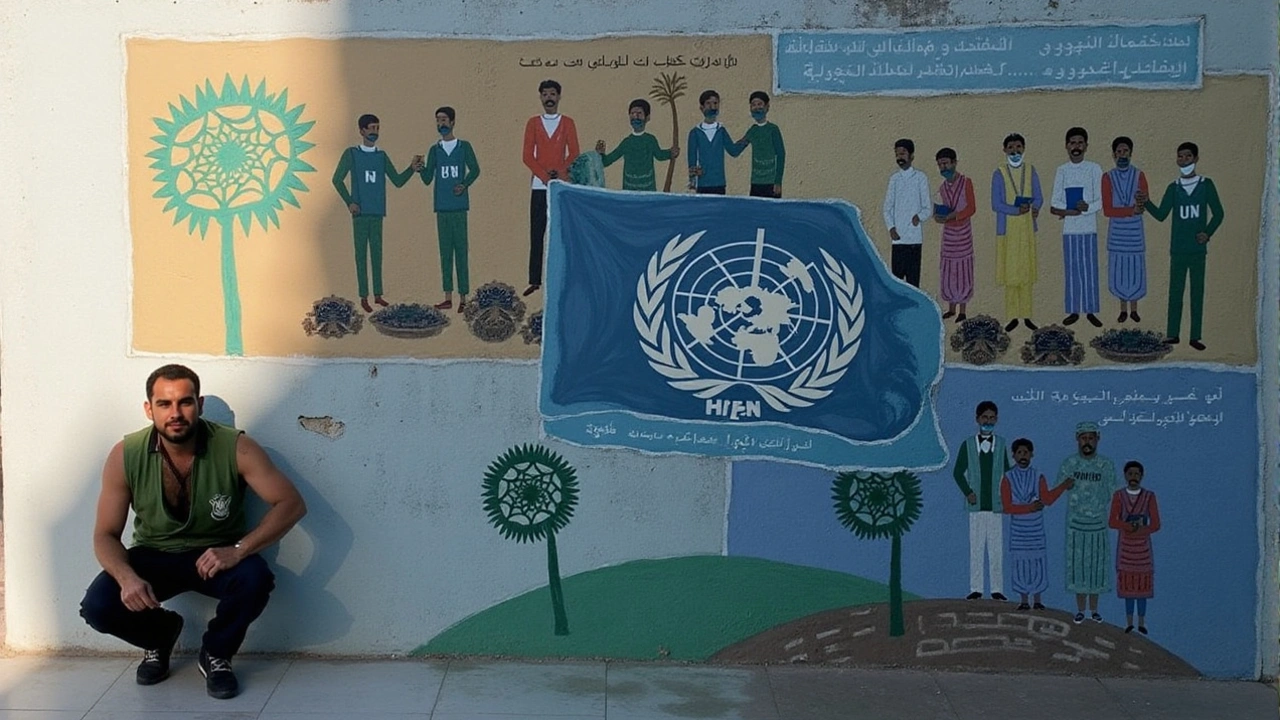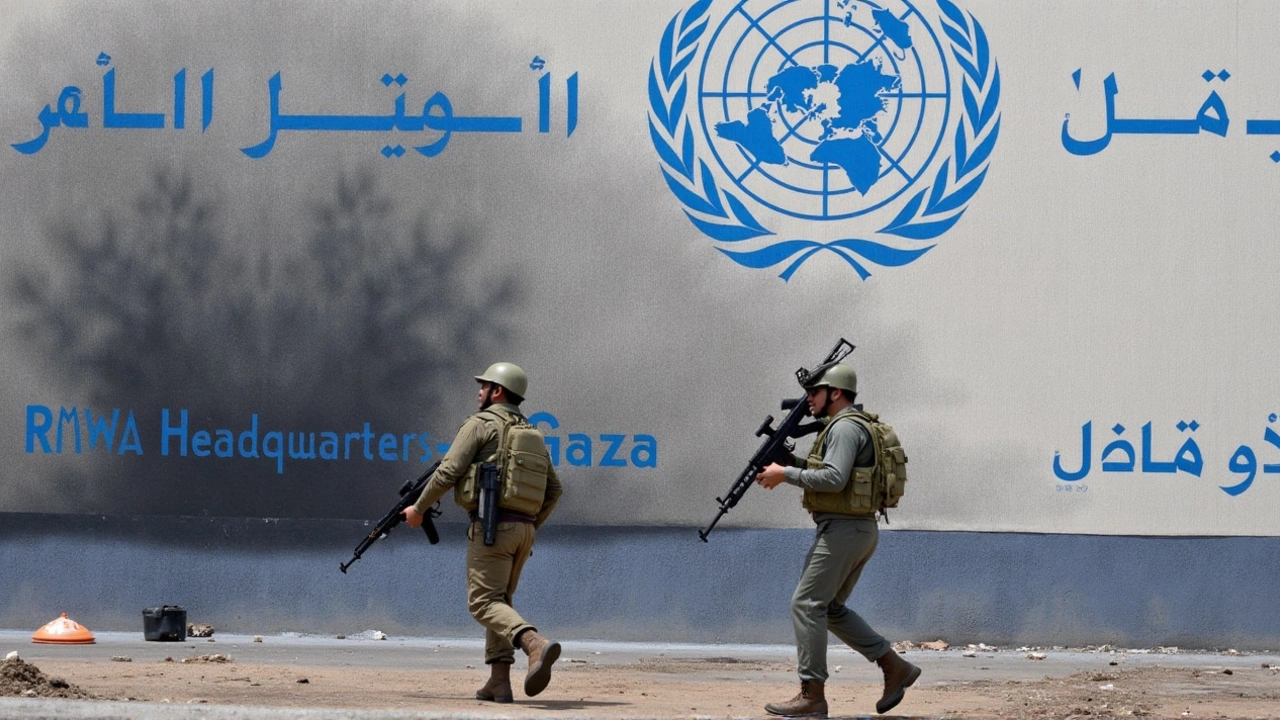Israel's Ban on UNRWA Operations Raises Global Concerns Over Humanitarian Impact
 Oct, 29 2024
Oct, 29 2024
Israel's Legislative Move: A New Chapter in a Continued Conflict
In a decisive turn, Israel's Parliament has enacted a law that prohibits the United Nations Relief and Works Agency for Palestine Refugees in the Near East, commonly known as UNRWA, from operating within its jurisdiction. The most affected areas include East Jerusalem and the occupied territories—regions where the agency's activities have been critical. This legislative power play has drawn wide-ranging international criticism, with humanitarian organizations and global leaders expressing profound concern over the imminent humanitarian crisis it could trigger.
The Genesis of Tensions: A Historical Context
To grasp the gravity of this development, it's vital to understand the historical context. UNRWA was established in 1949, following the Arab-Israeli conflict, with the aim of providing support to thousands of Palestinian refugees displaced as a result of the conflict. Over the decades, it has offered essential services in education, healthcare, and housing to millions of Palestinian refugees across the Middle East. Israel, however, has consistently criticized the agency, accusing it of perpetuating the refugee problem instead of resolving it. These criticisms have reached a new peak with allegations against UNRWA employees, purportedly involving them in acts of terror.
Allegations and the Path to Legislation
Prime Minister Benjamin Netanyahu and his government have pointed fingers at the agency, insinuating a sinister collaboration with Hamas, the governing body of Gaza. The Israeli government has presented what it claims to be concrete evidence, accusing UNRWA staff of complicity in an attack on October 7, 2023. These allegations have fueled the legislative process, leading to a decision that bars UNRWA's operations, a decision set to deploy within the next three months. While Israel lays out its justification, the response from the international community highlights the starkly different interpretations of these events.
Voices of Concern and the Global Backlash
As the law passed through the Israeli legislative process, the outcry from the international community was immediate and vocal. Volker Türk, the United Nations Human Rights chief, has been one of the many to voice deep concern. He reckons that the removal of UNRWA would amplify the struggles of the Palestinian people who are already marred by severe hardships. He isn't alone in this sentiment. The World Health Organization's head, Tedros Adhanom Ghebreyesus, also criticized the move, terming it "intolerable" due to its potential to exacerbate healthcare challenges for those dependent on the agency.
Diplomatic Reactions: A Global Call for Reassessment
The international diplomatic community hasn't remained silent. UN Secretary-General António Guterres expressed his apprehensions, suggesting that the issue might need to be revisited by the United Nations General Assembly. From the United States to the United Kingdom, voice after voice has joined to decry the potential outcomes of this ban. British Prime Minister Keir Starmer conveyed the UK's grave concerns, emphasizing the threat this law poses to the entire international humanitarian mechanism in Gaza. Despite this chorus of disapproval, Israel remains unwavering, defending the necessity of its actions.
Future Implications: Navigating a Blockade
With the legislation set to take effect, it promises to put a chokehold on UNRWA’s ability to deliver aid—a move with severe implications for those in need. The law will close off humanitarian aid pathways, shutter the East Jerusalem office, and curb entry and work authorizations for UNRWA staff. In a region where every avenue of assistance is desperate, the removal of a significant provider like UNRWA could lead to dire circumstances. As the contentious disputation continues, the world stands on the sidelines, predicting how this act will reshape the humanitarian and political landscape of the region.

Conclusion: The Human Cost of Diplomacy
At the heart of this dispute lies a humanitarian imperative: the well-being of the many people reliant on international assistance. While Israel focuses on security concerns and accountability, the world's eyes are on the potential cost to the innocent civilians caught in the crossfire of these geo-political aggressions. As the law looms closer to implementation, stakeholders are pressed to find a solution that preserves peace while addressing the security needs of all involved parties. Until that solution is found, the tense air of uncertainty and anticipation will continue to hover over the region.

Shalini Dabhade
October 30, 2024 AT 11:24Jothi Rajasekar
October 31, 2024 AT 15:38i mean, kids still need school, ya know?
Irigi Arun kumar
November 1, 2024 AT 01:25Jeyaprakash Gopalswamy
November 2, 2024 AT 06:08ajinkya Ingulkar
November 4, 2024 AT 00:21nidhi heda
November 5, 2024 AT 12:44DINESH BAJAJ
November 7, 2024 AT 11:01Rohit Raina
November 7, 2024 AT 14:06Prasad Dhumane
November 7, 2024 AT 23:23rajesh gorai
November 8, 2024 AT 10:46Rampravesh Singh
November 9, 2024 AT 13:09Akul Saini
November 10, 2024 AT 22:08Arvind Singh Chauhan
November 12, 2024 AT 16:49AAMITESH BANERJEE
November 13, 2024 AT 15:09Akshat Umrao
November 14, 2024 AT 12:26Sonu Kumar
November 15, 2024 AT 04:59sunil kumar
November 16, 2024 AT 07:13Derek Pholms
November 17, 2024 AT 08:17